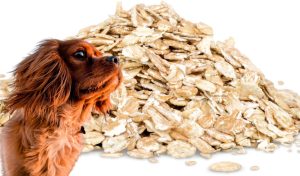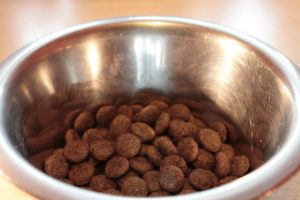If you’re a dog owner, it’s important to make sure your pet gets the nutrition he or she needs to stay happy and healthy.
But when considering treats, should dragon fruit be on the menu?
The answer might surprise you – we’ll dive into this topic today so you can make an informed decision about what is best for your four-legged family member.
Dragon fruit, also known as pitaya, is actually safe for dogs to eat. This tropical fruit contains rich amounts of vitamins and minerals that can benefit your pet’s health. It is high in fibre, antioxidants, and magnesium and is low in calories and fat.
What is dragon fruit and where does it come from?
Dragon fruit (also known as Pitaya) is a tropical fruit native to Central and South America.
It has a white, sweet and crunchy flesh that can be found in both yellow-skinned and red-skinned varieties.
The exterior looks like an artichoke with green and pink scales while its interior contains abundant small edible black seeds which add a unique flavour to the overall taste of the fruit.
As the dragon fruit is high in fibre, it helps promote digestive health, regulate tissue growth and improve overall intestinal health.
It also has anti-inflammatory properties that help with joint pain relief and relief from urinary tract issues.
With its vibrant colour and combination of nutrients, dragon fruit can be a great addition to any diet.

What are the health benefits of dragon fruit for dogs?
When fed to dogs in small amounts as part of a balanced diet, dragon fruit can offer numerous health benefits.
It contains high levels of magnesium and calcium, both of which are important for good neurological function, muscle function and keeping the bones healthy.
Additionally, it is high in vitamin C which contributes to increased immunity which helps to ensure your dog stays strong and healthy.
Furthermore, dragon fruit has a high fibre content that assists with digestion and maintains intestinal health.
Finally, essential fatty acids found in the fruit help promote shiny skin and fur for your canine companion.
Dragon fruit contains:
Vitamin C – Vitamin C is like a superhero for our canine friends! An antioxidant with anti-inflammatory powers and even the ability to aid in brain function, it’s an extra boost that can help support their immune system.
Calcium and Iron – Your dog’s health and wellbeing depend on the presence of certain nutrients, such as calcium and iron. They help in bone growth or skeletal development and also support the creation of vital red blood cells that transport oxygen throughout their body.
Omega 3 Fatty Acids – Packed with essential fatty acids and omega-6s, dragon fruit seeds are a great way to keep your dog healthy. The benefits of balanced fats go beyond improved joint movement – they also help to provide shiny coats, healthy skin and even brain development.
High Fibre – Dragon fruit is high in fibre which can help your dog’s bowel health and can also lower cholesterol and blood sugar levels.
How do you prepare dragon fruit for your dog?
Preparing dragon fruit for your dog is surprisingly easy. Simply wash off any dirt, peel the skin and remove the white pith from the inside, then cut it into cubes or slices or blend into a puree.
Dogs can eat and enjoy both the fleshy outer part of dragon fruit as well as its black seeds, which contain important minerals and vitamins like phosphorus, magnesium and B vitamins.
If using the puree form of dragon fruit, consider mixing it in with your dog’s regular food or adding a spoonful of yogurt for added flavour.
If using diced or sliced pieces, you can provide them as a training treat or mix them in with a bit of cooked oatmeal and offer this combination to your dog as an occasional snack.
Either way, note that moderation is key as too much dragon fruit can cause tummy upset in some dogs.
Are there any risks associated with feeding dragon fruit to dogs?
While it may be beneficial to a dog’s health, there are some important factors to consider before feeding your pet dragon fruit.
The high levels of natural sugar in dragon fruit can increase a dog’s risk for dental problems, as well as cause stomach issues for dogs prone to digestive sensitivity.
Additionally, dragon fruit contains oxalic acid, which should be monitored if given regularly since it can accumulate and contribute to kidney and bladder stones in some breeds.
Also, always make sure that you have removed the skin before feeding. It is often tough and, in some varieties of the fruit, there can be small, sharp thorns which, needless to say, would be unpleasant if eaten.
As with most things dog related, if you are keen to feed dragon fruit to your pet and have any concerns, then you should talk to your vet to get their professional opinion.
3 easy dragon fruit recipes for your dog
Dragon Fruit Smoothie: Blend a few cubes of fresh dragon fruit with plain yogurt and ice for a delicious, nutritious smoothie that your dog will adore.
Dragon Fruit Oatmeal: Cook up some oatmeal, add diced dragon fruit, and top with a sprinkle of oats or a dollop of Greek yogurt for an extra-special dog treat.
Dragon Fruit Ice Cream: Blend dragon fruit with a few tablespoons of coconut oil, pureed banana, and Greek yogurt for a cool, refreshing ice cream your pet will love to lap up on hot summer days.
Final Words
Dragon fruit can be beneficial to a dog’s health when given in moderation but you should introduce it slowly and monitor your pet for any signs of digestive upset or reactions.
Always speak to your vet before adding this exotic fruit to your dog’s diet, and take special care to prepare it properly.
And with these three easy recipes, you can give your pup a healthy treat they will love.











